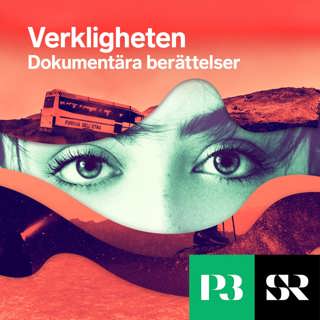
Who cares
Well over 400,000 elderly and disabled people in Britain rely on home care, and many of the care workers are from other parts of the world: Africa, the Middle East, South Asia and Eastern Europe. Some are highly qualified professionals, but have moved into badly paid care roles because they are finding it hard to gain a foothold in their own professions in the UK. As the population ages, these care workers are providing an ever more vital service. Yet their voices are very rarely heard. Blanche Girouard accompanies some of them on their rounds to hear their stories.
28 Apr 202027min

Coronavirus Global Conversations - Care home workers and Covid-19 vaccine volunteers
People from all over the world discuss our shared experience of the epidemic; from nurses in intensive care and vaccine researchers, to pregnant women and couples getting married in a lockdown. With host Nuala McGovern, they talk together about how they are living with the impact of these extraordinary times in different countries and how they are trying to get through it. This week: Paramedics and care home workers, living in slums during a pandemic, and the Covid-19 vaccine volunteers hoping to save lives.
26 Apr 202027min

Don't log off - part four
Alan Dein talks to people around the world about the challenges of family life in lockdown. He connects with Margaret in Uganda who has adopted many children orphaned by HIV. And he reaches out to Alezz in Peru, a trans non-binary person who is confined to their bedroom as their parents struggle to accept them. He also speaks to Pawel who got trapped in Poland at the start of January and does not know when he will be able to return home to his wife in China.
25 Apr 202027min

Saving Zimbabwe’s forests
Honey bees, cow dung and mulch; how a company in Zimbabwe is protecting forests in order to offset the carbon emissions of people around the world. Even though many flights are grounded at the moment, there is still a need to reduce the amount of carbon we pump into the atmosphere. But what happens when you can’t reduce it any further? You can offset it. Charlotte Ashton discovers a company based in Zimbabwe that runs one of the largest projects of its kind in the world and finds out where your money goes if you choose to offset your carbon emissions. Carbon Green Africa’s project focuses on protecting Zimbabwe’s existing forests, rather than planting new trees and her journey takes her to some surprising places. In a programme recorded last November, Charlotte finds that preventing deforestation not only helps her assuage her flight shame, but helps give people in a remote part of Zimbabwe new jobs, more food and an oven powered by cow dung! Presenter: Charlotte Ashton Producer: Phoebe Keane (Image: Forests in Guruve district, Zimbabwe. Credit: BBC/Phoebe Keane)
23 Apr 202026min

China and the virus
Has the coronavirus epidemic weakened or strengthened the grip of China’s Communist Party? In the early stages of the outbreak in the city of Wuhan, authorities there downplayed its significance. A doctor who sounded the alarm was forced to contradict himself. He later contracted Covid-19 and died from it. Medical facilities were initially unprepared. Mark Mardell assesses how President Xi and his government will emerge from the crisis.
22 Apr 202027min

In search of the quarter-life crisis
We’re told that our twenties are a time when we’re meant to be finding ourselves, having fun, living our best lives and making the most of our freedom before settling down. But are the twenties really like this for millennials around the world? You might have heard of the midlife crisis, said to hit anywhere between a person’s forties and early fifties. But in this programme, we’re trying to find out whether there’s such a thing as a quarter-life crisis. We’ll hear from young people about their experiences of the crisis and the pressures they say led them to it, from finding a fulfilling job, to landing the perfect partner, to fears they’ll never be able to buy a house and start to actually ‘adult’. We’ll hear experiences from Moscow, Cairo, New York, and London to see if this really is a worldwide issue. We’ll speak to experts about the evidence for whether it actually exists, including a pscyhologist who calls the quarter-life crisis a ‘global phenomenon’. Is this true, or are millennials just moaning and trying to find a new label for problems every generation has faced? We’ll dig in to the reasons people are feeling in crisis, and hear words of wisdom from those who have overcome it. This documentary is airing as part of Life Changes, a series of programmes and features across the BBC’s global networks exploring the theme of change - how we change ourselves, our lives, and how we respond to changes in the world around us. Reporting from across the world - from Ethiopia, Korea, Rwanda and Paraguay to Egypt, the US and Russia – it covers everything from sexuality to sustainability, from peace to war, and from neurodiversity to migration. Presented by Katerina Venediktova. Produced by Eleanor Layhe for BBC World Service.
21 Apr 202050min

The Response: Coronavirus - Lockdown tales from Riyadh, Hangzhou and Accra
The first episode includes concerns about the impact of a full lockdown in Ghana, the impact of the closure of public buildings on one man in Mississippi, there’s an insight from Hangzhou in China as the restrictions end and a woman in the UK explains how she felt as the symptoms of Covid 19 became clear.
21 Apr 202027min

Togetherness: Coronavirus Global Conversations - Dealing with grief
Shaye in the US, Ana in Spain and Elliot in the UK remember the parents they have lost to Covid-19 and the impact it is having on their lives. African Americans in New York, Massachusetts and Georgia consider why black communities in the United States are suffering so much during this health emergency. While social distancing meant Liat and Amir in Israel and Emine and Jon in the UK had to rip up their original wedding plans and come up with new ways to get married.
19 Apr 202027min





















